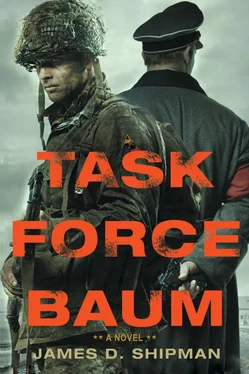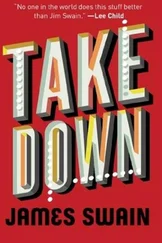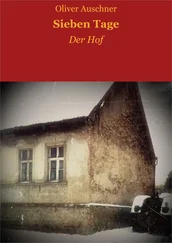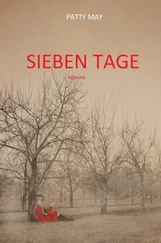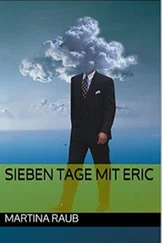James D. Shipman
TASK FORCE BAUM
I dedicate this book to my wonderful wife, Becky, who puts up with my continuous brainstorming, editing, fidgeting, and writing at all hours of the day and all days of the week.
The Ardennes Forest, Belgium
December 19, 1944
He tasted chocolate and blood. The frozen edge of the D ration lanced his gums. He sputtered and spit, a crimson froth staining the white blanket of snow at the edge of his foxhole. He bit again at the icy bar, more carefully this time. A chunk broke away, and he chewed greedily, wrestling the bitter flavor. He scanned the horizon through the darkness, his eyes walking the hundred yards to the woods. Nothing.
“Captain Curtis”—the voice jolted him, and he half-rose, his hand cradling an M1911 .45 automatic pistol. Second Lieutenant Tim Hanson materialized through the misty blackness, gingerly balancing two steaming tin cups. Hanson labored through the snow, his lean legs stabbing the icy dust into his knee with each strenuous step.
The lieutenant extended a bony hand, and Curtis gratefully grasped a mug, tipping the fluid to his lips. The coffee was scalding hot, and he burned his tongue with the first sip, but he relished the fiery liquid as he swallowed. His throat and stomach embraced the river of warmth. He was freezing. Colder than he could ever remember. The winters in Indiana were harsh, but there was always shelter waiting nearby. A warm fire or the heater of his pickup. Since they’d arrived a week ago, he’d stood, sat, and slept in an icy world with no escape. He pulled his jacket closer, fighting down anger. Where were the winter clothes the army had promised them? He took another sip, a deeper one. He removed his glasses and ran a cloth over them, wiping away the frost. His eyes scanned the trees again, an endless futile vigil.
“Anything out there, sir?” asked Hanson, drawing a handkerchief up to his nose between hazy breaths.
“I told you, you can call me Jim when it’s just the two of us around. And, no, nothing but trees and frost.”
“Any word from the outpost?”
Curtis nodded. “Half hour or so ago. They report the same. Course, this is supposed to be a quiet sector.”
“Maybe it’s more than that,” speculated Hanson, taking a sip of his coffee. “Rumor is the Germans have had it.”
Curtis grunted. “Figures. Two years of training, and we miss the whole show by a week. Let’s hope not. We can’t send these boys home empty-handed.”
“You’re not supposed to be this far up, sir,” said Hanson, his cobalt-colored eyes narrowing in concern.
“No choice, Lieutenant. I can’t make out a darn thing back at the command post. I need to see.” Curtis tipped his cup back, gulping down the rest of the coffee. He wiped his lips with a frozen glove.
“Guess it doesn’t matter,” said Hanson, shrugging. “Nothing going on anyway.”
“How are the men?”
“My platoon is fine. I can check on the rest of the boys, if you like.”
“Do it. Track down the sergeant major too. He can help. I want to make sure everyone’s getting some coffee and has sufficient rations. Any word on the hot food I requested?”
“Not a thing.”
Curtis grunted. “Check our ammo too.”
The lieutenant laughed. “Why, sir? Ain’t nobody that’s shot a thing since we got here.”
“Just do it. If anything comes our way, I want everyone prepared.”
“Roger that.”
“And get on the radio to battalion; ask about the food. And the clothes. Tell them we’re freezing our tails off up here.”
“Yes, sir.” Hanson climbed awkwardly out of the foxhole and shambled through the thick blanket of snow. The captain watched him until he vanished in the night.
Curtis pulled his jacket closer, searching for any scrap of warmth. He glanced at the single bars on his shoulders and smiled. Not even time to sew on the doubles. He wasn’t supposed to be running a whole damned company. He shook his head. What lousy luck. His CO came down with dysentery the night before they shipped out, and Curtis found himself in charge of 140 men. He spat into the snow, his gaze racing along the tree line again. Always nothing. He yawned, and his eyes watered. The forest in the distance shifted in and out of focus.
Red streaks ripped past him. The woods exploded in light. He watched in disbelief before he recovered. He opened his mouth to scream a warning, but a wave of thunder engulfed him, dropping him to his knees. Curtis blinked and strained to focus his eyes among the flashes in the distance. He couldn’t see a thing. Snow kicked up, washing over him. He fell to his stomach, closing his eyes, his hands covering his ears. He couldn’t move, yet his whole body shook in terror. What the hell was happening out there?
A moment passed, and another. He clutched the snow as the staccato barking of machine-gun fire shattered the air above him. He felt hot humiliation. I’m a coward, not fit for command . No! he shouted to himself. Get up! Take charge. He willed his hands down on either side and pushed himself to his knees. He drew his pistol and raised his head above the lip of the foxhole until he could see.
The flashing flickers from the tree line continued. He scanned rapidly to his left and right. His men were returning fire up the line of foxholes. He breathed deeply in relief. They were holding their position. He thought about the boys in the outpost, set just inside the trees a hundred yards toward the attack. They were probably dead. The snow exploded in front of him again, and he ducked down. Something hard slammed into him. He whipped his pistol around but held back on the trigger just in time. Lieutenant Hanson had returned.
“What that hell is going on!” Curtis demanded.
“Germans. I don’t know how many. A company at least. Maybe a battalion.”
“Tanks?”
“Not so far.”
“Are they advancing?”
Hanson shook his head. “They’re firing from the trees. Could just be a patrol. What do we do, sir?”
Curtis didn’t know. His mind whirled. He tried to reach back to all his training, but he drew a blank. His heart threatened to tear through his chest. He concentrated, striving to calm himself. Slowly the drilling crept back to him. He turned to the lieutenant. “Get back to the CP double quick! Call for reinforcements and any air support. And get our damned mortar crew working those trees!”
Hanson nodded. He turned and rose, scrambling out of the hole. Hot liquid washed over Curtis, and he couldn’t see. He spit some of the salty metallic solution out. It wasn’t water. What the hell had happened? He cleared his eyes and stared down in shock. Hanson lay against the foxhole; a gaping hole in his back spurted out frothy red bubbles. Curtis reached into his jacket and pulled out his field first-aid kit. He ripped open a packet and poured white powder all over the wound before pressing a bandage against it. The lieutenant writhed and groaned beneath his hands. Curtis drew out a morphine syringe and plunged the needle into Hanson’s shoulder. The lieutenant shuddered and lay still.
Curtis wound his arms around his wounded friend, rocking back and forth. Tears ran down his face. Around him, explosions mixed with screams of terror and pain. Where were the mortars? When would the reserves arrive? A new sound punctuated the darkness. The ominous rumble of diesel engines. Terror sprinted up his spine. Cannons cracked, and explosions rocked the line. He raised his head, and he saw them: German tanks rumbling through the field, stopping to fire before streaming forward. In fascinated horror, he saw white figures like ghosts darting among and behind the tanks. It felt like a dream, a nightmare. There were thousands of them.
Читать дальше
